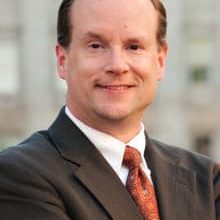A few weeks ago, a Palestinian hip-hop artist named Tamer Nafir performed what he himself labeled an “anti-Semitic” rap during a conference held at UNC Chapel Hill. “You look beautifully anti-Semitic,” he told the audience as it sang and clapped along.
The interim chancellor of UNC Chapel Hill, Kevin Guskiewicz, said he was “heartbroken and deeply offended that this performance happened.” Other critics reacted similarly after viewing a video by filmmaker Ami Horowitz that depicted not only Nafir’s song but also offensive statements made by others participating in the “Conflict Over Gaza” conference, which was held March 22-24 by, among others, the UNC Center for Middle East and Islamic Studies and co-sponsored by a wide range of university departments.
The three-minute Horowitz video, inevitably, went viral. Local television stations and, eventually, other media outlets covered the controversy, which came on the heels of other troubling incidents on campus such as racist graffiti scrawled on the Unsung Founders Memorial and anti-Semitic posters discovered in the graduate library.
As distressing as these events are, they have created a teachable moment about freedom of speech on public property.
Perhaps I missed it, but I’ve seen no UNC official or outside critics, including Horowitz, say Nafir or others espousing anti-Semitic or anti-Israel views should be banned from speaking at a public university. Nafir didn’t exhort the audience to commit violence. He didn’t threaten anyone. Regardless of whether you think his words were facially and appallingly anti-Semitic, or clumsily worded satire, or just ill-informed and awkward expressions of Palestinian rage, they constituted protected speech.
On public property, in particular, freedom of speech isn’t constrained by intentions or offensiveness. If you want to grunt out an anti-Semitic rap on my property, I can boot you off of it. But if you are otherwise complying with the rules and expressing yourself on public property, no such response is permissible.
With what rules must you comply? As I mentioned, you can’t exhort people to violence or criminality. In addition, you may have to accept time, place, and manner restrictions that serve to facilitate and protect free expression on campus.
For example, not everyone can speak, hold an event, or march in precisely the same place at the same time. A scheduling system is not only permissible but necessary as long as it applies strictly to scarce public spaces and is administered fairly. Related to that, freedom of speech does not extend to a “heckler’s veto.” If my student group schedules a speaker on campus and you show up to shout down or obstruct the speaker, you aren’t exercising free speech. You’re trying to shut it down. Removing you is, again, not just permissible but necessary to protect freedom of speech.
As for the other recent incidents, obviously freedom of expression does not extend to defacing monuments or artwork. Posting announcements of upcoming events on a bulletin board may be permissible, but simply throwing anti-Semitic flyers around tables in the library isn’t freedom of speech. It’s littering.
To their credit, UNC administrators reacted to the “Conflict Over Gaza” incident swiftly and responsibly. Sponsoring organizations demanded that they be removed as listed co-sponsors of the conference and that any money they spent promoting or staging it be refunded. Martin Brinkley, dean of the law school, accused the UNC Center for Middle East and Islamic Studies of a “breach of trust” with its campus colleagues. So it was.
The organizers of the conference joined Guskiewicz in condemning anti-Semitism. But they also contended that the video Horowitz produced had been “heavily edited” and “misconstrues the breadth of discourse that took place during the panels.” When my Carolina Journal colleague Kari Travis asked for proof of this assertion, she was told that the conference had not been recorded.
Horowitz didn’t record the entire event, either — because the organizers booted him from the public event, even though he was not exercising a heckler’s veto or otherwise disrupting it. A teachable moment, indeed.
Editor’s note: The John William Pope Foundation supports the work of EducationNC.



